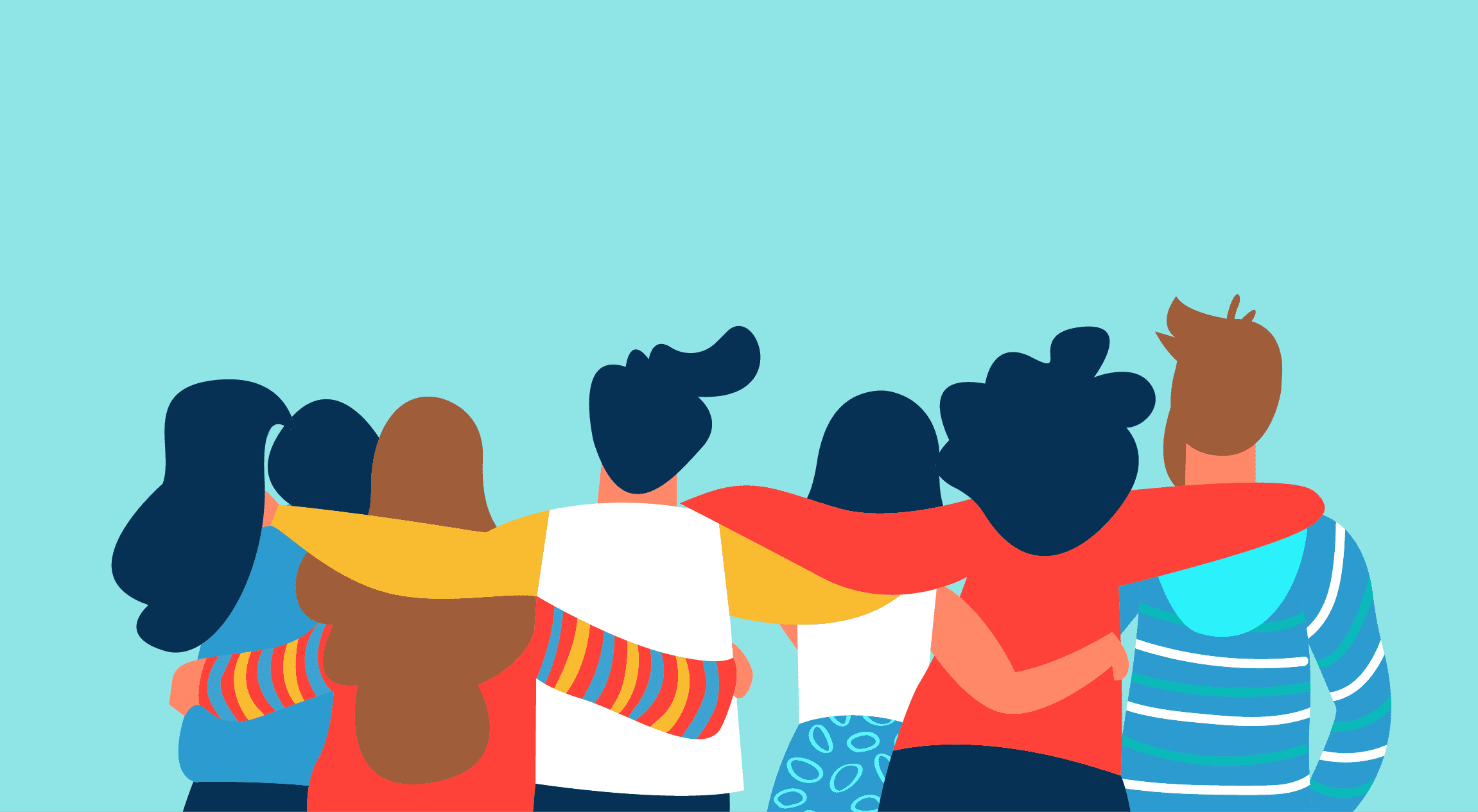How to Awaken Well-Being for Educators
The AWE Method
More and more educators are realizing the importance of taking the time to invest in their well-being, and they’re starting to prioritize self-care for both personal and professional development. Practicing self-compassion is the ultimate act of self-care and, as educators, this means prioritizing our own well-being and learning to treat ourselves kindly in times of stress and overwhelm. This allows us to be our best selves, and therefore positions us to better support our students and develop meaningful relationships with them.
Over several years, I researched, observed, and brainstormed, and I came up with a solution – the AWE method, short for “Awaken Well-Being for Educators.” AWE takes you through the ABC’s of reclaiming and reviving your joy in teaching. Through this method, I help organizations and individual teachers create school and classroom environments based on resiliency, self-compassion, and self-awareness. AWE is unique because it creates a “ripple effect of well-being” by putting educators first. Educators develop healthy habits for themselves, and then go on to develop healthy habits to use or emulate among their families and in their classrooms.
The AWE method walks you through the WHY, the HOW, and the WHAT of educator well-being and, if followed consistently, will allow you to take charge of how you respond under pressure. While educators may have little control over their working conditions, they can nevertheless be role models who inspire those around them to invest in creating a positive and supportive school environment where everyone looks after their own well-being and that of their colleagues.

WHY educator well-being is important.
Do you often feel exhausted, overwhelmed, and weary at the end of the school day?
Do you find yourself counting down the days to every long weekend, holiday or break in your very busy week?
When is the last time you gave yourself permission to pause and ask yourself, “What can I do to truly care for myself?”
The first step in building up our well-being is understanding why self-compassion – being kinder to ourselves – is important in bringing back well-being into any area of our school, classroom, or personal life.
Self-compassion entails being mindful, or more aware of our thoughts, feelings, and emotions. This allows us to pause and pinpoint what’s stressing us out, and therefore better control how we respond to other people and other things that are happening around us. This can be challenging, especially since our nervous system is trained to execute a “fight or flight” type of response – to become stressed or to avoid difficult situations rather than ignore them, accept them, or respond tactfully. In short, when we’re not paying attention to how we feel, we’re less able to manage our stress, which leads us to become overwhelmed, sick or – ultimately – burnt out.
Embodying the HOW of educator well-being.
Below is an exercise called the “Self-Compassion Break,” which you can try right now to practice being more aware and kinder to yourself in times of stress. This exercise can be found in the Mindful Self-Compassion (MSC) course, and is backed by research conducted by Kristin Neff and Chris Germer.
Self-Compassion Break
Think of a situation in your life that’s difficult and causing you stress. Call the situation to mind, and take stock of whether you begin feeling physically stressed or emotionally upset. Now, say to yourself…
- “This is a moment of suffering”
That’s practicing mindfulness. Other options include:
- “This hurts”
- “Ouch”
- “This is stress”
- “Suffering is a part of life”
That’s realizing that suffering is a normal human experience. Other options include:- “Other people feel this way”
- “I’m not alone”
- “We all struggle in our lives”
Next, put your hands over your heart, and feel their warmth and gentle touch on your chest. Now, say to yourself…
- “May I be kind to myself”
You can also ask yourself, “What do I need to hear right now to express kindness to myself?” Use a phrase that speaks to you in your particular situation, such as:
- “May I give myself the compassion that I need”
- “May I learn to accept myself as I am”
- “May I forgive myself”
- “May I be strong”
- “May I be patient”
This “Self-Compassion Break” can be used at any time – day or night – and will help you to pause and reflect on how you are thinking and feeling. By practicing these types of exercises, you can begin to meet difficult situations with self-compassion, and be strategic in how you approach your relationships with colleagues, students, and other people you interact with at work.

WHAT we need to do to awaken educator well-being.
To truly support our well-being, we need to take stock of the strengths and values that embody being well, which I call…
“The Seven C’s of Wellbeing”
Courage. According to author and professor Brene Brown, “Courage starts with showing up and letting ourselves be seen.” If we want to make well-being a priority for ourselves and within our school communities, then we need to take a step of courage by allowing ourselves to be vulnerable and ask for help when we need it.

Curiosity. Educators these days are in love with leading inquiry-based projects with their students. Let’s flip the script by practicing inquiry on ourselves where we ask, “What do I REALLY need right now?” Self-care doesn’t necessarily mean having a glass of wine or taking a bubble bath; rather, it’s often deeper and something that takes discipline. Let’s get curious about what we really need to stay well, such as more love and connection, time in nature, or space to connect spiritually.
Community. This one’s relatively simple: find a team of supporters, friends, a coach, or a mentor whom you can ask for help. We don’t need to care for our well-being all on our own. In actuality, it’s important to collaborate and build community, and motivate and support each other. Educators rarely have enough time to do this, but it’s important to make this a priority as much as possible.

Clear Your Way. We need to let go of the expectation that we can do it all. We can’t. We can only do one or two things well at a given time. To improve our well-being, we need to learn to set boundaries, realize that “less is more,” and practice “going slow to move fast.” When we let go of this expectation, we also let go of things that don’t contribute to our well-being, such as low priority things on our to-do lists, unhealthy relationships, and the list goes on.
Cultivating Care. Give yourself permission to care for yourself. As I’ve mentioned, when we do this in a kind and loving way, we’re better able to care for other people – including our students.

Creating Culture. As educators, we create space for our students (and our colleagues) to feel valued and authentic. When we prioritize well-being as part of our culture – how we do things and how we say things – our actions and words become contagious and we inspire others to do the same.
Compassion. Lastly, be kind to yourself, and show yourself the compassion that you would to those entrusted in your care.

The Takeaway
Educators are also caregivers, and they often suffer as a result of the emotional investment they put into ensuring other people’s well-being. They’re exhausted and can often feel undervalued in today’s culture. As professionals – and as human beings – what educators want is to be seen, heard, valued, and understood. We want to feel like we’re giving back to our schools in a meaningful and purposeful way, as well as having an impact in the lives of each of our students. While improving working conditions is a long-term effort that can be difficult for one person to change, everyone can play a role in changing how they think, speak, and act each day, and the AWE method is a great way for you to start taking your first steps regardless of the situation you may find yourself in.
Connect with Lisa to learn how to awaken the wellbeing of educators in your school’s culture by practicing the ABCs! Find Lisa at www.lisabaylis.com to learn more about upcoming workshops and retreats that she offers, or to have her speak with your staff and school. And look for her book in the spring that dives deeper into this method
Photo: Adobe Stock
